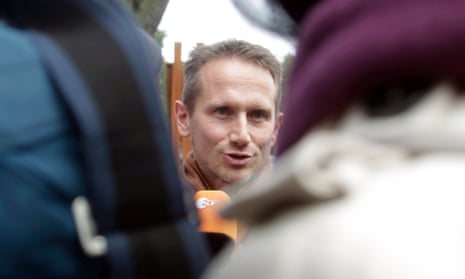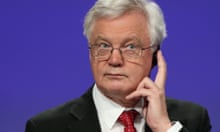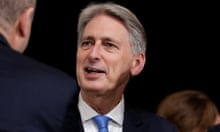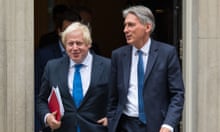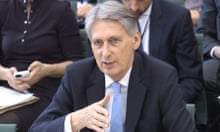Downing Street’s hopes of opening Brexit talks on a future trade deal have been given a boost by Denmark, whose finance minister dismissed the EU’s wrangling over the UK’s divorce bill as “a game” that requires swift political compromise.
Kristian Jensen told the Guardian he believed both sides should be ready to move the talks on following the concessions made in Theresa May’s speech in Florence last month.
Jensen said: “In any political negotiations, there is not enough time, not enough money, not enough this, not enough that. This is part of the game. Because what we are dealing with here is not rocket science. We are not speaking about putting a man on Mars or solving the problem of CO2 emissions.
“We are now on the same page … In my view it is rather important we get into a more close and more speedy process on concluding some of the issues.”
The fifth round of the Brexit negotiations start on Monday and Germany and France are among the member states who still want to continue to restrict the scope of the negotiations until more firm guarantees on money are made by the British. But the UK is hoping other member states will want to be more flexible after May offered to pay €20bn to ensure no member state loses out in the two years after May 2019.
On Tuesday, the EU’s chief negotiator, Michel Barnier, told the European parliament he was holding out for the UK to agree to honour all its past financial commitments, “no more, no less”. The EU is insisting that until “sufficient progress” is made on that issue, along with citizens’ rights and the Irish border, it will not open up talks about the future, something the European commission had originally planned to happen at a summit in Brussels on 19 October.
A meeting of EU ambassadors on Friday was split on how best to encourage the UK to make further commitments on the financial settlement, however. One suggestion, which did not command majority support, was that at the European council summit, the EU would offer to discuss between themselves how a future trade relationship would work or open “scoping” discussions about a transition period, in an attempt to encourage Britain to be more forthcoming.
Representatives of the German chancellor, Angela Merkel, and the French president, Emmanuel Macron, led a group of member states stridently opposed to showing such flexibility.
Jensen, whose country would be affected more than most by a trade barrier between the UK and the EU, said the bloc would nevertheless have to compromise. “We are talking about a political agreement between two parties,” he said. “If there is one thing politicians are good at doing it is making an agreement, if the political will is there.
“This will never be a 100% win for one side or the other side. This will be a political compromise.”
Q&AWhat are the two phases of the Brexit talks?
Show
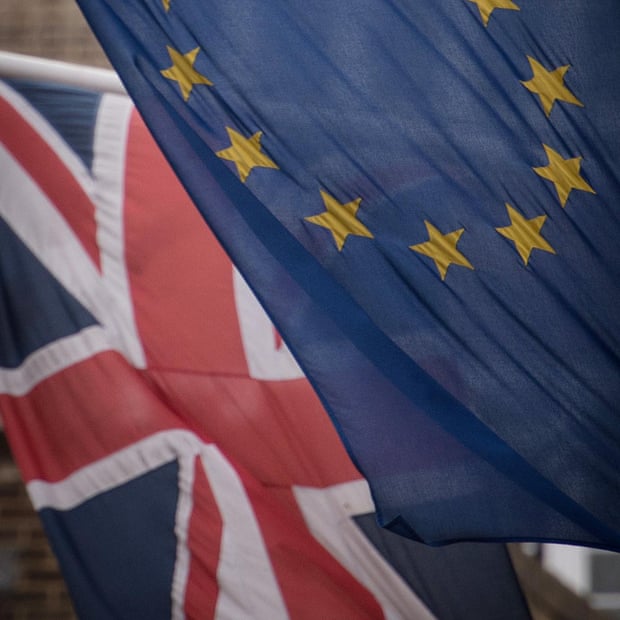
The EU27’s negotiating guidelines for the two-year Brexit talks stipulate that they must take place in two phases: separation and “orderly withdrawal”, followed by future relationship. Only when the EU27 decide “sufficient progress” has been made on phase one can phase two begin.
Broadly, phase one is about providing “clarity and certainty” to people and businesses on Brexit’s consequences and agreeing a sum covering the commitments the UK made as an EU member: avoiding a legal vacuum, protecting citizens’ rights, solving the Irish border, and reaching a financial settlement.
Phase two of the talks will then focus on agreeing the “framework” of the future trading relationship between the UK and the EU. A transition period can also be agreed as part of this second stage, but the detail of the future relationship can only be worked out once the UK has left.
Britain wants to move to stage two fast, but in order to keep as much leverage as possible in talks on the future relationship aims to delay agreeing the financial settlement as long as possible. The EU27 are adamant that all phase one issues must be addressed to their satisfaction before any talk of the future relationship.
Denmark, a longtime ally of the UK within the EU, had until recently taken a strong line on Brexit and the importance of retaining the integrity of the single market despite its strong trade links with Britain. This year Jensen was the subject of a public rebuke by the British ambassador to Denmark, Dominic Schroeder, after he said of Brexit: “There are small nations and there are countries that have not yet realised they are small nations.”
Yet, while careful not to criticise Barnier, whose negotiating mandate was set in April by the 27 other EU member states, Jensen told the Guardian that both parties in the negotiation needed to up the pace of their talks. “The UK is a great trading partner of EU27, a strong ally in defence and security, so we need to find out how we can have a good and close relationship post-Brexit,” he said.
“We are negotiating together with the rest of EU27 so I wouldn’t put forward a specific Danish position on this. Just underlining that it is important that both sides are ready and able to move on. Because otherwise we get into an endgame where things are very precious on time and therefore a greater risk of making decisions that are not welcome.”
Jensen said the prime minister’s promise in Florence to honour commitments to the EU budget for two years after Brexit, and to make further payments for security and development aid, amounted to a step change that should be reciprocated. “This is not just a matter of bookkeepers trying to make up the score. It is also a negotiation over the coming way to work together,” Jensen said.
He added: “I think it is in our interest to have a transition period. We will find common ground on that. The difficult part will be the length of the transition period, what are the issues of cooperation afterwards, and that’s why it is important we keep momentum in the negotiations, and both sides are ready and able to negotiate fast.”
The Danish minister, who is tipped as a future prime minister, was one of a number of key politicians Davis met last month, including senior figures in the Dutch and Belgian governments and MEPs from the largest group in the European parliament, the European People’s party, representing constituencies in Spain, Germany and Ireland.
